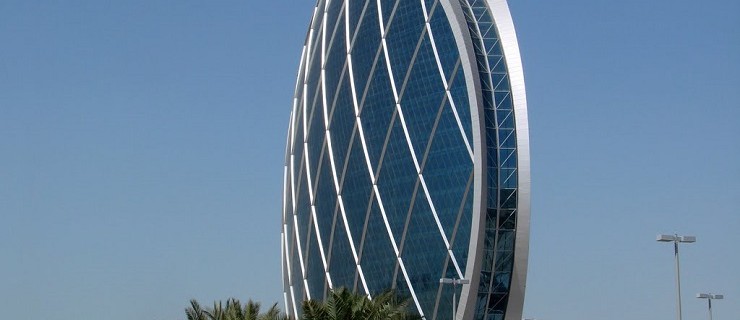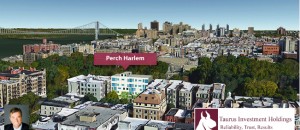Barring the purchase of an actual piece of property, there's really only one way into the United Arab Emirates real estate market. And that's via Princeton, New Jersey, starting from the offices of Blackrock Investment Management, owners of the iShares family of exchange traded funds.
They launched their MSCI U.A.E. capped ETF (UAE) in April 2014, right around the time the MSCI pulled the Persian Gulf country out of frontier market status and made it an emerging one.
American investors don't know much about U.A.E.
It's home to some of the biggest ports in the world, for starters. It's become a travel hub connecting the Western world to Asia through Emirates Airlines and Etihad Airways. But it's also home to the world's tallest building. And most of the architecture there makes the planet earth look like it really is the 21st Century. This is where artsy engineers go to build opera houses and museums, lifestyle properties and resort islands like Abu Dhabi's new Lula Island. If investors want a piece of the action, the U.A.E. ETF is the only liquid, daily, port of call for opportunity seekers bored to smithereens by the BRICs.
About 29% of the fund is in real estate, as of Jan. 23. The biggest weighting — 18.4% — goes to the developers of the Burj Khalifa, the world's tallest building, built by Emaar Properties.
Emaar is now a multinational. It has luxury housing in Beverly Hills, though the company is mostly a play on Dubai housing.
The second biggest real estate developer in the fund is Abu Dhabi-based Aldar Properties.
Aldar runs Yas Island, the Abu Dhabi one percenter Emirati (as if there was anything less) playground. Yas is the home of Ferrari World, water theme parks and golf courses. Aldar also owns a number of large development properties in the city, including the new Aviation Towers, a sort of Love Boat-inspired condominium for jet-setting airline workers.
There is no way American retail investors can get in on these markets, unless they get a local broker in the U.A.E.
Bubble Prone?
The U.A.E. real estate market expanded quickly in the early to mid-2000s. Dubai was the center of this expansion, turning patches of desert into towers of steel and glass. The Emirati leaders invited international banks to set up offices in the city. Expats came. The real estate market boomed for a while and then it busted in 2008 with the financial crisis. Foreign employees of Western banks left the country. Their banks closed down. This is still ongoing, however. Standard Life closed its Dubai office in November following UBS's exit in September.
Abu Dhabi and Dubai, however, are still building. It's not just residential and commercial anymore. It's also cultural centers like the new Opera House in Dubai and Saadiyat Island, where the Emiratis signed deals years ago to bring the Guggenheim Museum there, as well the Louvre.
Since joining the MSCI Emerging Markets Index, the U.A.E. continues to see an increase in portfolio inflows over the last 12 months. Short term, the story line has changed because of oil prices. And while the U.A.E. can thank oil for its wealth, the economy is one of the more diverse in the Arab world. Just 1.95% of the ETF is in energy stocks.
The improving real estate market has been no match for oil. Risk takers who like the real estate and financial story in the U.A.E. might see the 20% decline in the ETF since April as a buying opportunity.
On the housing side, the bubble has popped and hasn't been inflated since. Dubai's performance in the past two years suggests the city has become more stable, says local real estate market research firm Bayut.
The government slowed price increases by taking regulatory measures such as a 75% mortgage cap for expatriates and 80% for nationals. Transfer fees also increased from 2% to 4%, resulting in the stabilization of property prices and limiting speculation.
The World Expo will be held in Dubai in 2020, and Bayut said in a report released last week that “investors are gaining confidence in the country's hospitality sector. The emirate's growing number of tourists brings immense potential that investors have gradually started to discover,” the report authors wrote.
Read more: How To Buy Into UAE's Futuristic Real Estate Market






